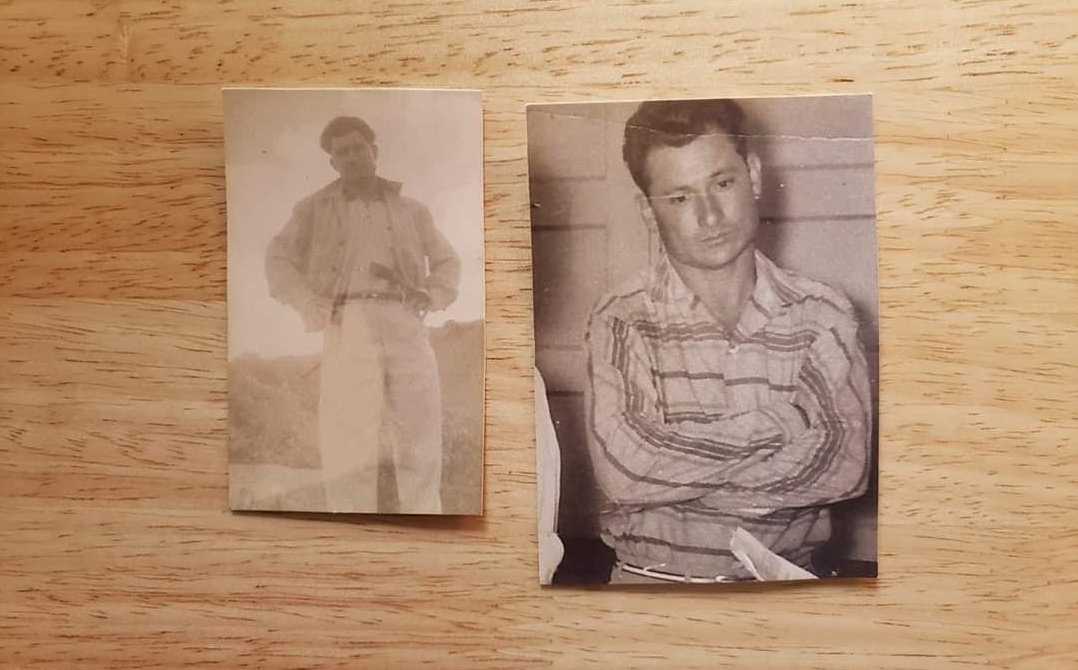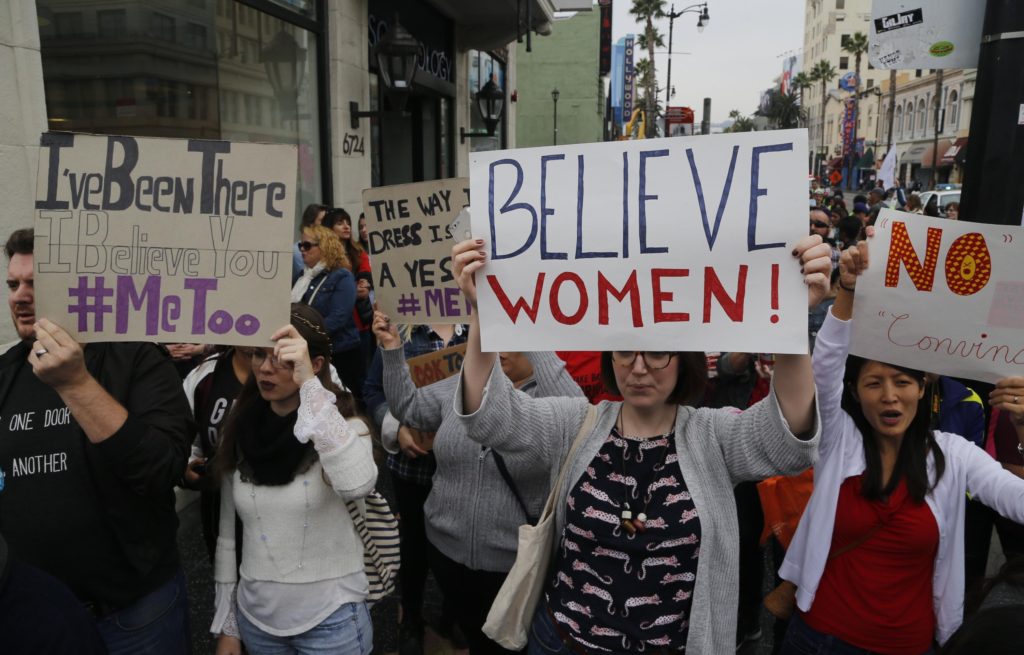
One of the last memories I have of my father is of sitting beside him on the couch a day or two before he died, asking him questions big and small. The fog of Alzheimer’s had set down like a cloud over his mind. I just wanted to keep him thinking, to direct his mind away from the yawning abyss of forgetfulness that terrified him.
"Power, like ideas, has consequences, and the ceding of cultural power by whites is nothing but a long, drawn-out suicide. If whites continue to cede cultural power in the nation their forbears built, we will all pay the consequences."
My father was a hard man; all but one of his five brothers had been murdered in Mexico. I have a picture of him standing on a hill, hands on his hips with a revolver tucked into his waistband. Mexico was and still is the Old West, where justice is the iron on your hip. There is no English common law, no recourse to “inalienable” natural right. Mexico is home to the Hobbesian reality that lurks just beyond the pruned hedges of civilization.
He came from the worst part of it—Michoacán, “tierra caliente” (hot land), characterized by a relentlessly hot climate and civil unrest. But my father spoke little to me of this old life of his, perhaps because it appeared to him that I was from another world. I spoke mostly English, had mostly white friends, and he probably thought I couldn’t—or shouldn’t—relate. I don’t want to say that hard and wounded was the only side to him; but it is the side I remember and reflect on most now.
What’s your favorite animal?” I asked. “Caballo” (horse), he said after a moment of silence. His sunken, dewy eyes drifted across the room and his mouth slowly formed into a smile. Then he told me a quixotic story about how he rode all throughout Mexico on his beautiful brown horse. For a little while he settled down for work, but he jumped back in the saddle after a knife fight over a woman. My father kept a crude, ancient looking Bowie, the handle inlaid with bone, forged by one of his murdered brothers, inscribed “Recuerdos de Apatzingán” (Memories of Apatzingán, my father’s native city in the state of Michoacán). My father fled town not knowing whether he had mortally wounded his challenger, not wanting to stick around for more trouble in any event. The last words shouted by the man he stabbed in the chest, “Me mataste!” (You have killed me!), rang in his ears as he galloped away.
His mind turned to California. He spoke of the foremen he worked with after arriving in the Golden State in the 1950s. A white man with a Midwestern accent. A real taskmaster, my father said in Spanish with a chuckle, who demanded strict discipline and rigorous effort from workers, or they were gone. The lucidity of his recall suggested this memory was seared upon his mind by years of backbreaking labor.
My father communicated a sense of respect compelled by the authority of that foreman. There was an understanding between him and my father: the newcomer would defer, he who had to earn his place in a country neither he nor his ancestors had built. Nations become like families, countries like houses, and as guests we ought to learn the table manners. Certainly, the notion of this social dynamic is appalling to the contemporary mind. It is not fit, after all, for an era that demands equality and the elimination of group distinctions. And yet minorities have not received this memo—my father certainly never did. Indeed, out of Asians, blacks, Hispanics, and whites, only the last group tend to see the world through colorblind eyes.
Then there is the opposition to white people and their traditions, a concerted, insidious project. To take just one example of many, in the 1970s, at the University of North Florida in Jacksonville, there was a controversial class on race called “Human Conflict: Black and White.” There five black students and five white students met with Professor Peter Kranz. In the first week, the students voiced whatever racial prejudice they had for the other group. In the second week, they read Malcom X’s autobiography, then expressed their racial prejudices for the other group again. By week three, the students were subjected to a visit from a local Black Panther, after which they wrote about their feelings. The white students, said Philip Mobley, then a 19-year-old black student, felt “emotional” and “embarrassed,” while the black students felt “a little more assertive and free….It was liberating.” Kranz’s class essentially taught whites to hate themselves and blacks to feel justified in hating them.
Far from solving America’s problem of racial tension, our academic institutions have only made it worse. This can be seen from, among other things, the GenForward Survey by the University of Chicago, billed as “a nationally representative survey of over 1750 young adults ages 18-34 conducted bi-monthly that pays special attention to how race and ethnicity shape how respondents experience and think about the world.” Data from a September 2017 GenForward Survey indicated that among racial groups whites were lowest in in-group preference. In an October 2017 GenForward Survey, a plurality of Hispanics (59 percent), blacks (46 percent), and Asians (61 percent) said demographic changes projected to make minorities the majority of the U.S. population by the middle of this century would “Strengthen the country,” compared to 35 percent of whites who agreed. Unsurprisingly, a plurality of whites (49 percent) responded “Doesn’t make much difference.”
Asked “which threat facing people in the United States is most concerning to them,” 39 percent of whites responded: “People in the U.S. inspired by foreign extremists.” 29 percent of whites said “Individuals and groups from outside the U.S.” By contrast, Hispanics (44 percent), blacks (55 percent), and Asians (52 percent) overwhelmingly identified “White extremists” as the greatest threat facing the U.S., compared to 32 percent of whites who agreed. As to whether “they agree or disagree that discrimination against whites has become as big a problem as discrimination against blacks and other minorities,” respondent answers were similarly predictable: 72 percent of Hispanics, 71 percent of blacks, and 77 percent of Asians disagreed, compared to 48 percent of whites who agreed. You almost feel bad for white liberals. Almost.
The main takeaway from the GenForward Survey is that whites are the only group who think that when they cede cultural power, other groups will lay down their arms and agree to an armistice. The example of South Africa showed the dream of universal suffrage meant a mere changing of who held the sword, but we, being naïve optimists, still have not learned this hard lesson. “In societies severely divided by ethnicity, race, religion, language, or any other form of ascriptive affiliation,” argues Donald L. Horowitz, a scholar of democracy at Duke University, “ethnic divisions make democracy difficult, because they tend to produce ethnic parties and ethnic voting. An ethnic party with a majority of votes and seats can dominate minority groups, seemingly in perpetuity.”
In America, white liberals—by which I also mean most conservatives—frequently display open contempt for their own group. This Jeremy Carl, a research fellow at the Hoover Institution, calls “ethnic sado-narcissism,” that is, “a demonstration of self-love that perversely manifests itself as a desire to denigrate and punish the broader ethnic group to which one belongs.” Sado-narcissism comes in various forms. Some hysterically deny, for example, that America has a necessary or vital connection to any particular group of flesh and blood people or to the cultural legacy of European civilization. Thus, in 1996, Rep. Bob Dornan, then a Republican representative for California’s 46th district and, according to Sam Francis, one of the most conservative members of Congress, not only expressed joy at the prospect of America’s looming demographic shift, but near contempt for his own people. “I want to see America stay a nation of immigrants,” he said ahead of election day in his nearly 50 percent Hispanic district, “and if we lose our Northern European stock—your coloring and mine, blue eyes and fair hair—tough!”[1] Yet minorities were unimpressed by Dornan’s racial sackcloth. During the ballots, Hispanic voters replaced him with Loretta Sanchez, who emphasized her non-white identity by dropping her legal name, “Brixey,” for her Hispanic maiden name, “Sanchez.”
What was considered a pathetic capitulation to the rise of diversity and multiculturalism then has become the modus operandi of the Republican Party. Still, today Dornan almost looks like a right-wing culture warrior compared to the industry that has emerged around white shame, featured in prominent places like the New York Times. “I feel like there is no ‘me’ outside of my white/upper middle class/cisgender identity,” writes “Whitey,” an anonymous solicitor seeking advice from the wokeratti at the Times. “I feel like my literal existence hurts people, like I’m always taking up space that should belong to someone else.”
Cue columnists Steve Almond and Cheryl Strayed. “As a straight white male raised by two professionals in an American suburb, I know I was born into a life of extraordinary privilege,” Almond declares. “It took me many years to begin to recognize these advantages as unearned, the product of corrupt systems stacked in my favor.” Now comes Strayed. “As you seem well aware, your race granted you privileges that were and are denied to people who are not white,” she tells “Whitey. “This is true for all white people in America,” she continues, “no matter how racially diverse their childhood neighborhoods were or were not, no matter how much money their families had or didn’t have, no matter how difficult or easy their lives have been.” That’s right—every dirt poor, struggling, scrounging white in this country actually has it good!
Whites, says Jeremy Carl, “have a unique distaste for their own ethnic group. And this matters for all of us because data show that white liberals dominate the institutions—the media, Hollywood and academia—that do the most to shape our public narrative.” Plainly, there is a crucial difference between a lack of in-group bias, born of a certain moral advancement, and hyper-moral masochism. In many instances, the lack of in-group bias among whites corresponds to a strange self-hatred and self-deprecation, quite unthinkable among other groups. White liberals readily agree with resentful minorities that to be white is to be bad in a moral sense. Meanwhile, white “conservatives,” so anxious to please the left, deny that Western societies, with their unique cultural traditions, should try to preserve the racial demographics without which such societies are surely unimaginable. Such “conservatives” even hold up deeply flawed persons like Martin Luther King Jr. as their heroes, primarily because such persons are non-whites who appear to have imbibed European Enlightenment ideas: and this hero worship may be related to white sado-narcissism.
Let me be emphatic: Mine are not “white supremacist” talking points, but observable aspects of life in the contemporary United States. Furthermore, with their sado-narcissism whites only hurt the very people they claim to be protecting from racial discrimination. “Black elites and activists across the world have adopted a culture of verbal tyranny,” argues Chigozie Obioma, “in which they shut down any effort to reason or criticize us or black-majority nations by labeling such attempts as ‘racism’ or ‘hate speech.’” For Obioma, a Nigerian writer and Assistant Professor of Literature and Creative Writing at the University of Nebraska-Lincoln, the white preoccupation with shielding minorities from criticism does far more harm than good. As a result, “no one will talk about the painful fact that most African and Caribbean nations have either failed or are about to collapse.”
For myself, I do not consider America to be a social contract, a proposition, or mere set of Enlightenment ideas packaged and handed out at a border to new arrivals. Nor can I imagine that my father did. I do not believe it is desirable to sever this country from the historic Euro-American demographic that wove the basic fabric of American culture into which people like my father could assimilate. It is striking that many minorities, in ways both positive and negative, perceive this subject with clearer eyes than their white counterparts do. “American culture is white men’s culture,” said Lucy Tan, a Chinese Trump supporter speaking to Rong Xiaoqing for National Review. “We came to this country because we like this culture,” Tan maintained. Asked how they felt about the Chinese Exclusion Act, Tan and her fellow Chinese Trump supporters countered that it was created, in part, because Chinese laborers were being used as strikebreakers. These days it would be unusual to get such a straightforward answer from a white Republican.
White liberals and conservatives will go to great pains to explain to people like Tan what they take to be axiomatic political truths, blind to the simple reality that it is not all a bad thing for minorities—especially immigrants—to conclude there is something good, and therefore worthy of imitation and respect, about “white men’s culture.” Deference, after all, is a sign of respect and the root of comity. Olaudah Equiano, an eighteenth-century freedman and abolitionist, wrote of the English: “I no longer looked upon them as spirits, but as men superior to us; and therefore I had the stronger desire to resemble them; to imbibe their spirit, and imitate their manners; I therefore embraced every occasion of improvement; and every new thing that I observed I treasured up in my memory.”[2]
In his final hours, as we were discussing what is best in life as he prepared to depart from it, my father raised his trembling fist in the air. “Lo que más importa en la vida,” he said, “es el poder.” That is, “what matters most in this life is power.” “These efforts by a nation’s leaders to deconstruct the nation they governed,” wrote the late political scientist Samuel P. Huntington, looking back in the twilight of his life, “were, quite possibly, without precedent in human history.”[3] Power, like ideas, has consequences, and the ceding of cultural power by whites is nothing but a long, drawn-out suicide. If whites continue to cede cultural power in the nation their forbears built, we will all pay the consequences.
Notes
[1] Francis, Samuel T. America Extinguished: Mass Immigration and the Disintegration of American Culture. Virginia. Americans for Immigration Control. 5-6.
[2] Equiano, Olaudah, The Interesting Narrative of the Life of Olaudah Equiano, Or Gustavus Vassa, The African Written By Himself. HardPress Publishing. Kindle Edition. 50.
[3] Huntington, Samuel P. Who Are We? The Challenges to America’s National Identity. New York. Simon & Schuster. 143.

